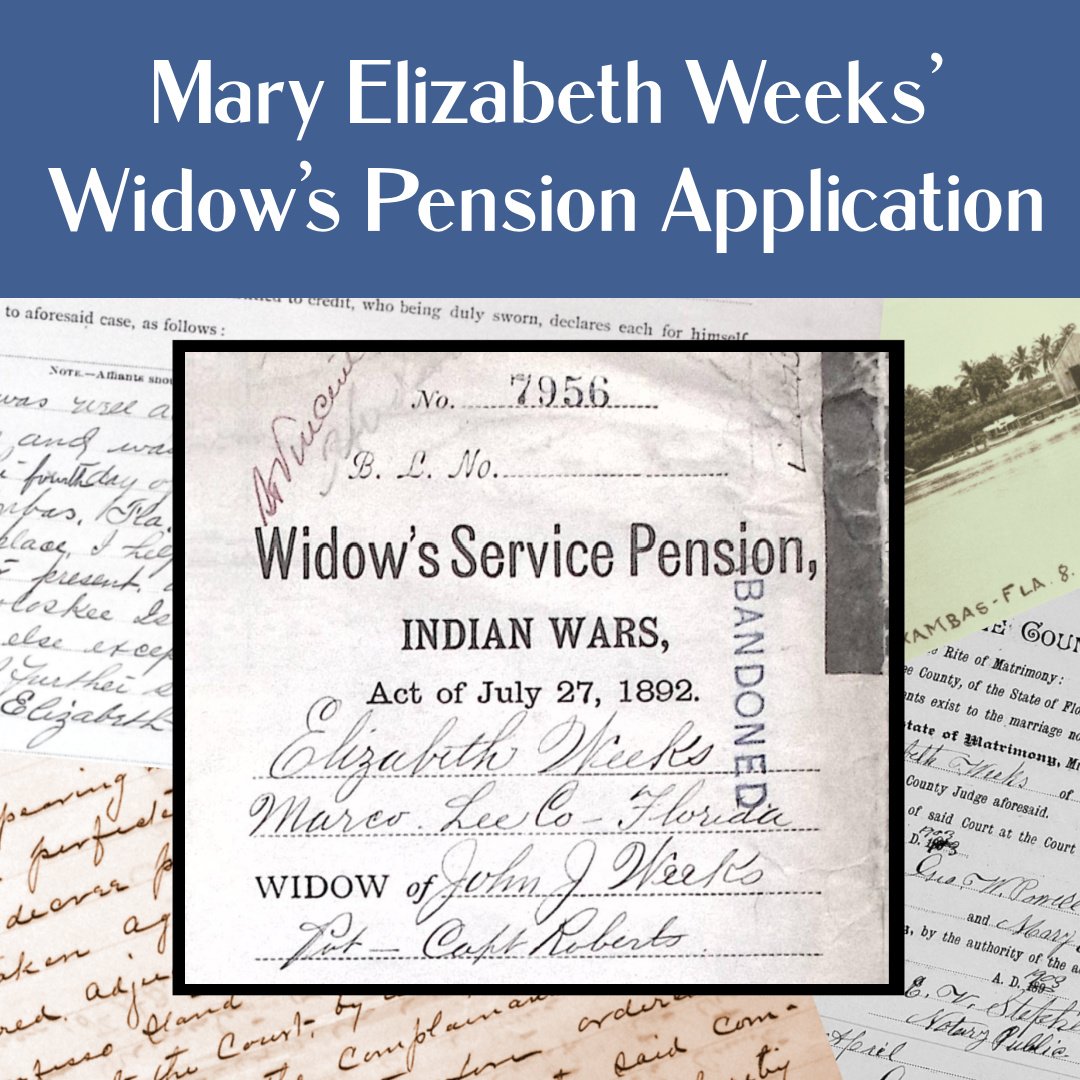Mary Elizabeth Weeks’ Widow’s Pension Application
The final portion of the 68-page pension file for John J Weeks is the Widow’s Pension Application submitted by his wife, Mary Elizabeth “Lizzie” Raulerson Weeks. (The portion of his pension file dedicated to his Mexican War service can be found here and the portion dedicated to his Indian War service can be found here.)
Note: the entire widow’s pension application can be found on Mary Elizabeth Raulerson’s profile within my publicly available tree on ancestry.com
On July 17, 1900, Mary Elizabeth filed for a widow’s pension through Nathan Bickford, a solicitor in Washington, D.C. The application included affidavits from witnesses who attested to her marriage to John and his military service under Captain Arthur Roberts. It also confirmed the details surrounding his death from dropsy (modern-day edema) on June 4, 1900, and his burial on Horr’s Island. Witnesses W. D. Collier and R. L. Eubank, who resided near the Weeks family, verified that John and Mary Elizabeth had lived as husband and wife until his death.
Horr's Island, dated 1905. Captain John Horr's (1843-1926) house seen in the center with a pineapple packing shed on waterfront (extreme right). Notation reads "Horr's Island, Caxambas, Fla." Courtesy of Collier County Museums, Naples, Fl. http://i.colliergov.net/museum/everglades-and-ten-thousand-island-historic-archive/78.14.54.jpg.php
One of the main complications that delayed Mary Elizabeth’s pension approval was John J. Weeks’ previous marriage to Deborah Tanner. This marriage had ended in divorce in 1856 in Hillsborough County, Florida, with a decree pro-confesso, a legal term used when a defendant does not respond to the plaintiff’s allegations, resulting in a ruling in the plaintiff’s favor. William Weeks, John’s nephew, confirmed in an affidavit that his uncle had indeed been married and divorced before marrying Mary Elizabeth Weeks. He testified that his knowledge of John’s divorce came from his father’s recounting of family history.
Throughout the application process, Mary Elizabeth, also known as "Lizzie," had to prove her relationship with John and her status as his lawful widow. The application revealed discrepancies, such as the use of her maiden name "Raulerson" and its alternative spelling "Roleson" in marriage documents. Mary Elizabeth also had to provide evidence that she had not been previously married before her union with John, as well as prove that they cohabited until his death.
Ultimately, Mary Elizabeth’s widow’s pension claim was never approved. Her decision to marry Andrew J. Barnes in April of 1903, nearly three years after John’s death, rendered her ineligible for pension benefits under the laws of the time. The law disqualified widows from receiving pensions if they remarried, and her second marriage nullified her claim.
"Florida Marriages, 1830-1993," database with images, FamilySearch (https://familysearch.org/ark:/61903/3:1:33S7-818K-SYN?cc=1803936&wc=4JHR-WF7%3A1590072682%2C1590072704 : 12 July 2019), Lee County > Marriage records, 1887-1924, vol 1-3 > image 225 of 614; citing multiple County Clerks of Court, Florida.
This pension application solidifies the familial ties between John J. Weeks of Lee County in the late 19th century and the John Weeks of Hillsborough County in the 1840s and 1850s, whose military service played a significant role in Florida’s history during the Indian Wars.



